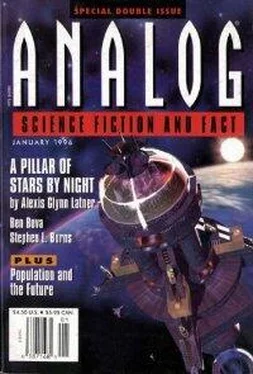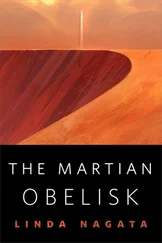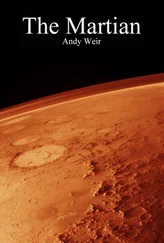G. Nordley - Martian Valkyrie
Здесь есть возможность читать онлайн «G. Nordley - Martian Valkyrie» весь текст электронной книги совершенно бесплатно (целиком полную версию без сокращений). В некоторых случаях можно слушать аудио, скачать через торрент в формате fb2 и присутствует краткое содержание. Год выпуска: 1996, Издательство: Dell Magazines, Жанр: Космическая фантастика, на английском языке. Описание произведения, (предисловие) а так же отзывы посетителей доступны на портале библиотеки ЛибКат.
- Название:Martian Valkyrie
- Автор:
- Издательство:Dell Magazines
- Жанр:
- Год:1996
- ISBN:нет данных
- Рейтинг книги:5 / 5. Голосов: 1
-
Избранное:Добавить в избранное
- Отзывы:
-
Ваша оценка:
- 100
- 1
- 2
- 3
- 4
- 5
Martian Valkyrie: краткое содержание, описание и аннотация
Предлагаем к чтению аннотацию, описание, краткое содержание или предисловие (зависит от того, что написал сам автор книги «Martian Valkyrie»). Если вы не нашли необходимую информацию о книге — напишите в комментариях, мы постараемся отыскать её.
Martian Valkyrie — читать онлайн бесплатно полную книгу (весь текст) целиком
Ниже представлен текст книги, разбитый по страницам. Система сохранения места последней прочитанной страницы, позволяет с удобством читать онлайн бесплатно книгу «Martian Valkyrie», без необходимости каждый раз заново искать на чём Вы остановились. Поставьте закладку, и сможете в любой момент перейти на страницу, на которой закончили чтение.
Интервал:
Закладка:
G. David Nordley
Martian Valkyrie
I, Enrico Lopez, am the first man to set foot on Mars and come back alive. But there are moments when I feel a heroic death, like that of Robert Falcon Scott, would have suited me far better. Better than what I must live with, and what I must live without.
Back in Bergen, old man Halvorsen must still be laughing. Yes, he is still alive and intends to live forever. Any day now, the genetic engineers have been saying. Good for him. He does not dare die, I think, for where he is going they will not be so gentle.
Let him laugh, part of me says. Despite our problems, we got much more scientific data, core samples, measurements, and everything. Our rovers roved, our balloons floated, and our scientists have enough data for a million graduate theses. So, in the long view of things, I suppose it matters not one bit who was first on Mars or how we got back.
Except to me, and to history.
Four days out from Earth on our very carefully planned trajectory, things had settled into a nominal routine. The United Nations’s official expedition was a four-ship orbital armada, with forty carefully chosen and politically representative scientists and astronauts and the latest hardware, including nuclear thermal rockets and power-assisted hard suits. With a trillion dollars spent in planning, programming, research and development before the first cargo ships left low Earth orbit, we had all the requirements covered. As its commander, I would be on the first shuttle down and first on the surface. I had my speech memorized.
I remember the moment everything changed with vivid clarity. I was in my double-sized cabin on our flagship, the Zhang-Diaz , and had just strapped myself into my bunk and ordered the lights down. I had just started to dream about my wife, Linda, and other women I have known, when two loud tones signaled an event important enough to perturb my sleep schedule. I mention it because, even at the expense of my dignity, I cannot resist this irony. For those who believe in signs, there it is.
A voice followed the chimes. “Enrico, this is Mustaffa.” Ahmed Mustaffa was the spacecraft’s master and my second for the expedition.
“I am awake. What is it?”
“We just downloaded a message from Thor Halvorsen. That Norwegian lunar expedition—it’s departed and it doesn’t look like it’s going to the Moon.”
“Where else would it go?” I asked. The Norwegians’ tiny, stubbornly independent space exploration effort had just assembled two lunar spacecraft in low orbit. Had they had another accident? Two years ago, they had lost the supplies for a Norwegian lunar base camp when their cargo ships had failed to do the lunar orbit insertion burn. Cut-rate space programs are the most expensive kind, I told myself. Would we have to rescue them and sacrifice some or all of our own mission? “What is the message, Mustaffa?”
“All the message said was, ‘Norway mission headed toward Mars— Halvorsen.’ But there’s a press release appended. The file’s under ‘Halvorsen ’ ”
I suddenly felt cold. It was no accident. Had it been anyone else, I would have taken this as a historical joke, but, a generation ago, Halvorsen had found the buried glacier in the rim of Amundsen Crater near the lunar south pole—with a tenth the usual budget. He took his nation s history of exploration very seriously, and he had all the daring and competence of his forbears.
My cabin featured a small desk next to my bunk, and over the desk was my vid, a mosaic of sixteen flat high-resolution panels joined seamlessly in a commander-sized interface display. A perk of office, but I had to get out of bed to look at it. I resealed and adjusted my tight suit, undid the velcro restraints, and swung myself out of the bunk so I floated in front of it. The sterile circulating air chilled me—our vents did their job so efficiently that they took even the smell of my body away before it could reach my nose.
“Display the Halvorsen file,” I said. Text and a diagram filled the vid.
I stared at the report in disbelief. They had launched themselves on an eighty-eight day trajectory with a chemical rocket, obviously intending to use the Martian atmosphere in an aerocapture maneuver.
Many studies going back to the 1980s showed that was a terrible idea. It was too hard, they said, to design a big interplanetary spaceship that would fit behind an aeroshield. They said the density of the Martian atmosphere was too variable to plan a precise thirteen-kilometer-per-second aerobraking maneuver. Without it, they said the mission called for some thirty kilometers per second of total delta-V, and this required development of the nuclear-thermal rockets.
Halvorsen had laughed at them then, and now, apparently, had launched his own expedition.
“Mustaffa, one of three things will happen:
“First, and most likely, the Norwegians will kill themselves. They will either burn up or fail to be captured.” Perhaps, for a fleeting moment, before good Christian conscience took charge of my thoughts, I even hoped that they would.
“Two,” I continued, “if mainly by luck, they manage to reach Martian orbit, we will probably have to rescue them. There is no way a ship that small could carry enough fuel for a landing and return, even using aero-braking. They are counting on our supplies and our good hearts to steal a share of our glory.” We would, of course, perform the rescue. Ungraciously.
“But, if all that is somehow wrong, the third possibility is that Halvorsen will make us look like idiots.” Perhaps I feared that the most. He had been on the original planning committee, but as the expedition had gotten bigger, more complex, more expensive, more politically influenced by the member nations, and more compromised, he’d become more and more obstinate. As one of those experts, I’d had words with him. Finally, he had stormed out of a meeting and not returned.
Now he was saying, in effect, that he’d been right all along and that we’d spent a trillion dollars that could have been spent better elsewhere. I shuddered. If true, the media would dance on the graves of our reputations for years to come. That was the worst case I could imagine.
Imagination, however, was never one of my strong points.
“It will be as Allah wills,” Mustaffa said. “But I, for one, will try to avoid doing idiotic things.”
“ Sí. Zhang-D, put a telescope on the Moon.” We were already three million kilometers from Luna, but in a second, Mare Orientale filled the screen— three half rings bisected by the shadow line. It would be full Moon back home.
“Center it left of the Farside limb, and give me maximum magnification.” Once the sunlit side of the Moon was off-screen, the video intensity readjusted, and I could almost see the shadowed lunar limb in silhouette against the star clouds of Sagittarius. Tiny specks of light flecked the farside of Luna now, explorers and settlements now almost a decade old. There was nothing moving, and for a moment I had hope that Halvorsen’s announcement was a joke—Halvorsen paraphrasing what Amundsen sent to Scott a century and a quarter ago.
Then I saw them emerge from our Moon’s shadow Two spots of light, brighter than any nearby stars. They seemed to be moving slowly relative to each other as well as against the background.
A line flashed between the spots of light. What? Of course. It was the specular glint as a cable caught the Sun just right. Halvorsen, of course, would have used tethers for artificial gravity, after all our committees and systems analysts had decided they were more problems than they were worth.
“Put a dish on them and listen. Contact Mission Control. I’ll be up to ops in a minute.”
Читать дальшеИнтервал:
Закладка:
Похожие книги на «Martian Valkyrie»
Представляем Вашему вниманию похожие книги на «Martian Valkyrie» списком для выбора. Мы отобрали схожую по названию и смыслу литературу в надежде предоставить читателям больше вариантов отыскать новые, интересные, ещё непрочитанные произведения.
Обсуждение, отзывы о книге «Martian Valkyrie» и просто собственные мнения читателей. Оставьте ваши комментарии, напишите, что Вы думаете о произведении, его смысле или главных героях. Укажите что конкретно понравилось, а что нет, и почему Вы так считаете.












